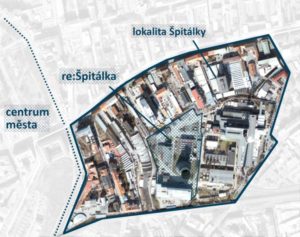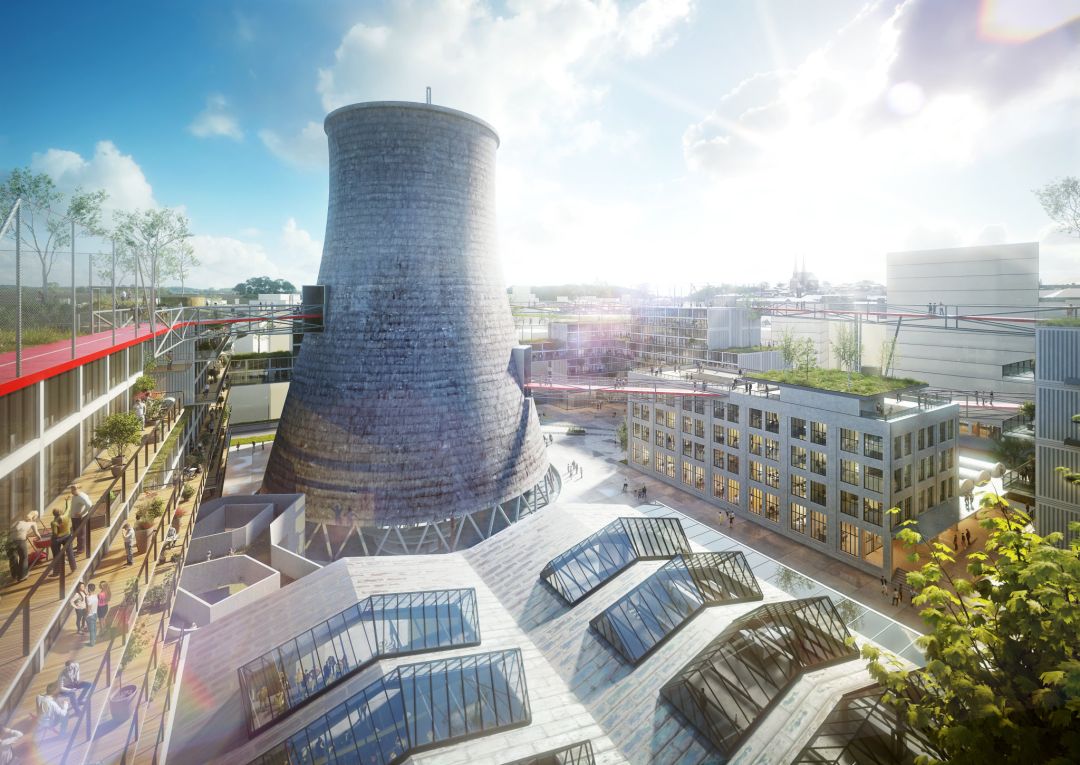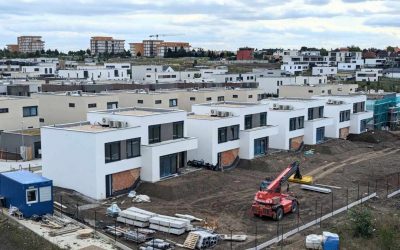Having started its search for a strategic investor for the Špitalka district, the city of Brno decided to put the brownfield project on the world stage at MIPIM. It’s taken six years, but the city now has a master zoning plan for the 24.5 ha zone, along with a detailed master plan for a small portion of it: the smart district called RE:Špitálka.
Project manager Lukáš Grůza says RE:Špitálka is a 2.5 ha which will feature a variety of functions, including around 600 rental apartments and an enormous cooling tower left over from the former Spitalka district heating plant. Rather than demolishing the tower, it will serve as the zone’s landmark and be remodeled to create a four-level events space. The city will reconstruct three other buildings on the site, while tearing down others and replacing them with apartment buildings. The city will organize a tender for the construction of transport and necessary infrastructure, with work beginning as soon as 2025.
 But what’s more pressing is to create a viable business model that makes possible the entry of a strategic partner for the whole site. “We don’t have to make a big profit, but we also can’t lose a lot of money on it,” says Grůza. The term “smart district” no longer refers to timed traffic lights and high-tech gimmicks. Instead, it means the city is thinking from the beginning how to create a self-contained project with minimal impact on the environment. Materials will be recycled from any demolished buildings, while the energy for the entire district should be designed as a whole, using an intelligent energy operating system to ensure maximum efficiency.
But what’s more pressing is to create a viable business model that makes possible the entry of a strategic partner for the whole site. “We don’t have to make a big profit, but we also can’t lose a lot of money on it,” says Grůza. The term “smart district” no longer refers to timed traffic lights and high-tech gimmicks. Instead, it means the city is thinking from the beginning how to create a self-contained project with minimal impact on the environment. Materials will be recycled from any demolished buildings, while the energy for the entire district should be designed as a whole, using an intelligent energy operating system to ensure maximum efficiency.
The rental flats could be as small as 30 sqm and will target younger people or couples for whom the industrial surroundings wouldn’t be a problem. Grůza says the goal is to create a vibrant atmosphere that mixes residential construction with a cultural hub that could host a variety of attractions, from concerts to fashion shows, boxing or street food.
The project emerged out Brno’s participation in a European Union initiative called RUGGEDISED — a smart-city program that featured Rotterdam, Glasgow and Umeå along with three fellow cities: Brno, Gdansk and Parma. The idea was to test, implement and promote the smart city model across Europe by pushing innovative, sustainable solutions that encourage cooperation between public and private stakeholders.
Also in ThePrime
Chris Zeuner (7R): Over-pricing went further in Western Europe





